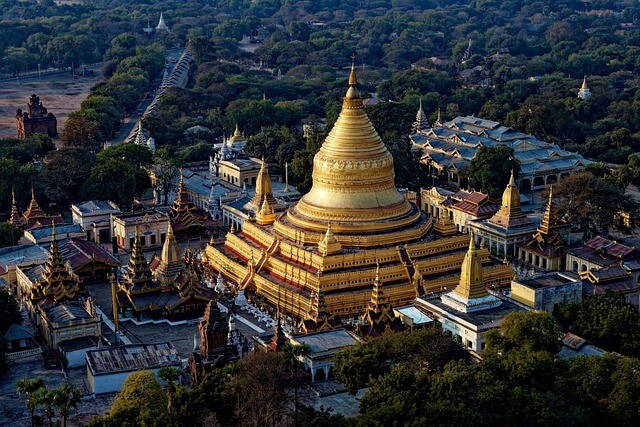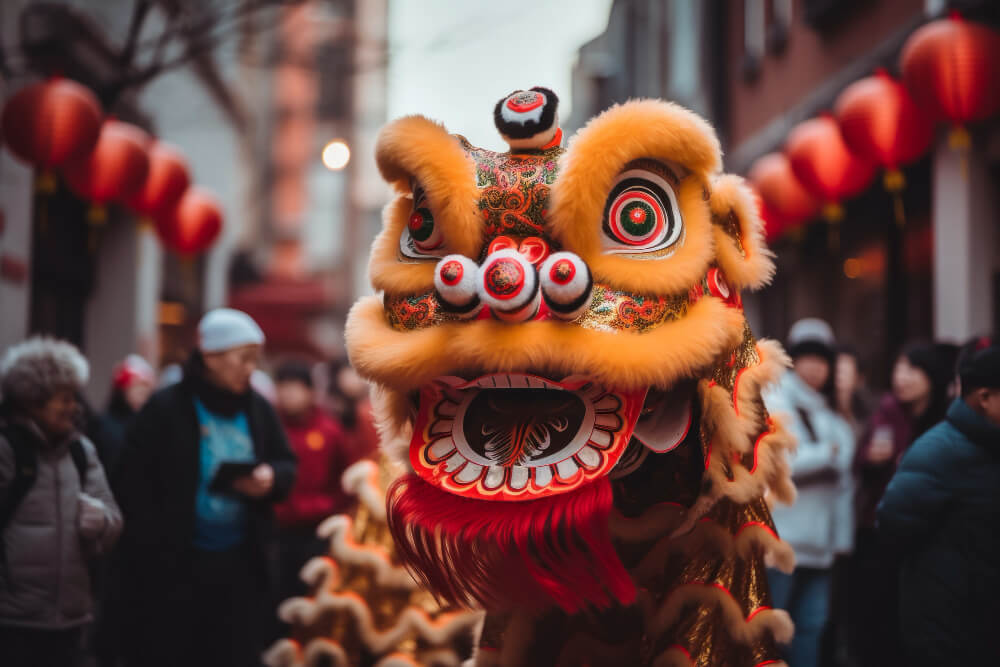
Are you ready to immerse yourself in the mesmerizing world of dragon festivals in Asia? These vibrant celebrations are not just events; they’re windows into the rich tapestry of Asian culture and history.
Whether you’re a seasoned traveler or a curious explorer, embarking on a journey to a dragon festival promises an unforgettable experience filled with color, tradition, and excitement.
Delving into Dragon Festivals: A Cultural Odyssey
Before we dive into the nitty-gritty of attending dragon festivals, let’s take a moment to understand their significance.
Dragon festivals are deeply rooted in Asian folklore and mythology, paying homage to the revered dragon, a symbol of power, prosperity, and good fortune.
These festivals are not mere spectacles; they are sacred rituals that bring communities together to honor their heritage and ancestors.
The Dragon’s Lair: Where to Find Dragon Festivals
Dragon festivals are celebrated across Asia, each with its unique customs and traditions. Here’s a glimpse into some of the most iconic dragon festivals you can experience:
Dragon Boat Festival (China): Held on the fifth day of the fifth lunar month, the Dragon Boat Festival, also known as Duanwu Festival, is a time-honored tradition that commemorates the life and death of the ancient poet Qu Yuan.
The highlight of the festival is the exhilarating dragon boat races, where teams paddle to the rhythmic beat of drums, vying for glory and good fortune.
Thimithi Festival (Singapore): Deepavali, also known as the Thimithi Festival, is celebrated by the Tamil community in Singapore with great fervor.
One of the most captivating rituals of the festival is the fire-walking ceremony, where devotees walk barefoot over a bed of hot coals to demonstrate their faith and devotion.
Bonn Om Touk Water Festival (Cambodia): The Bonn Om Touk Water Festival, also known as the Cambodian Water Festival, is a grand spectacle that marks the reversal of the flow of the Tonle Sap River.
Thousands of intricately decorated boats, adorned with colorful lights and banners, glide gracefully along the river, accompanied by traditional music and dance.
No matter which dragon festival you choose to attend, you’re bound to be swept away by the enchanting sights and sounds that await you.
A Dragon’s Guide to Festival Etiquette
Now that you’ve decided to embark on your dragon festival adventure, it’s essential to familiarize yourself with some basic festival etiquette to ensure a smooth and respectful experience:
Respect Local Customs: Each dragon festival comes with its own set of customs and traditions. Take the time to learn about the cultural practices observed during the festival and show respect by adhering to them.
Dress Appropriately: Dress modestly and comfortably, taking into account the local climate and customs. Avoid wearing revealing or offensive attire, especially when visiting temples or participating in religious ceremonies.
Mind Your Manners: Be mindful of your behavior and interactions with locals. Always greet people with a smile and a polite nod, and refrain from engaging in disruptive or disrespectful behavior.
By observing these simple guidelines, you’ll not only show respect for the host culture but also enhance your own festival experience.
The Art of Festival Navigation: Insider Tips for Making the Most of Your Experience
Navigating a bustling dragon festival can be overwhelming, especially for first-time visitors. Here are some insider tips to help you make the most of your experience:
Plan Ahead: Research the festival schedule and highlights in advance, so you don’t miss out on any must-see events or performances.
Arrive Early: Beat the crowds by arriving early to secure a prime viewing spot for the dragon dance or boat race. You’ll thank yourself later when you have an unobstructed view of the action.
Sample Local Delicacies: Dragon festivals are a feast for the senses, especially when it comes to food. Be sure to sample some of the delicious street food and traditional dishes offered at the festival, from steaming bowls of noodles to savory dumplings.
Immerse Yourself: Don’t be a passive observer; immerse yourself in the festival’s energy and excitement. Join in on a traditional dance, try your hand at a cultural activity, or strike up a conversation with a local vendor. You’ll be amazed at the connections you can make when you step out of your comfort zone.
By following these insider tips, you’ll not only have a more enjoyable festival experience but also create lasting memories that you’ll cherish for years to come.
Beyond the Festival: Exploring the Cultural Landscape
While the dragon festival may be the main event, don’t forget to take some time to explore the surrounding area and immerse yourself in the local culture. Here are a few ideas to extend your adventure beyond the festival grounds:
Visit Historical Sites: Take a stroll through ancient temples, palaces, and landmarks to gain a deeper understanding of the region’s history and heritage.
Explore Local Markets: Wander through bustling markets and bazaars, where you can shop for unique souvenirs, handicrafts, and artisanal goods.
Attend Cultural Performances: Check out traditional music and dance performances, art exhibitions, and theater productions to further enrich your cultural experience.
By venturing beyond the festival grounds, you’ll gain a broader perspective of the destination and create a more holistic travel experience.

Keeping the Magic Alive: Sharing Your Festival Experience
As your dragon festival adventure comes to a close, don’t let the magic fade away. Share your photos, stories, and memories with friends and family, and encourage them to embark on their own festival adventures.
You can also connect with fellow travelers on social media platforms and online forums to exchange tips, recommendations, and experiences.
By sharing your festival experience with others, you’ll not only keep the magic alive but also inspire others to explore the rich cultural tapestry of Asia.
Conclusion
Dragon festivals in Asia are more than just events; they’re gateways to a world of wonder, tradition, and discovery.
Whether you’re drawn to the pulsating energy of the Dragon Boat Festival, the spiritual fervor of the Thimithi Festival, or the enchanting spectacle of the Bonn Om Touk Water Festival, each festival offers a unique opportunity to immerse yourself in the beauty and diversity of Asian culture.
So, pack your bags, open your heart, and get ready for the adventure of a lifetime. The dragons await – are you ready to unlock the secrets of their festivals?
With each step you take, may you find joy, inspiration, and a deeper appreciation for the rich tapestry of cultures that make Asia truly magical. Happy travels, and may the dragons guide you on your journey!
FAQs
What are some of the key traditions and customs associated with dragon boat festivals in Asia?
Dragon boat festivals typically involve dragon boat racing, where teams race long, narrow boats decorated with dragon heads and tails. Other common traditions include eating zongzi (sticky rice dumplings), drinking realgar wine, and performing rituals to ward off bad spirits. The festivals often commemorate historical figures like the ancient Chinese poet Qu Yuan.
How can I participate in a dragon boat festival as a visitor?
Many dragon boat festivals welcome spectators and even allow visitors to join in the festivities. You can watch the exciting dragon boat races, try traditional festival foods, and participate in cultural activities like arts and crafts. Some festivals also have vendor markets where you can shop for unique local products. Checking the event schedule and planning ahead is key to making the most of your experience.
What are some of the best places to attend a dragon boat festival in Asia?
Major dragon boat festivals take place across China, as well as in other Asian countries like Hong Kong, Singapore, and Malaysia. Some of the most famous and lively festivals include the Tuen Ng Festival in Hong Kong, the Singapore Dragon Boat Festival, and the Duanwu Festival in various cities across China.
How can I learn more about the cultural significance and history behind dragon boat festivals?
Many museums, cultural centers, and festival organizers provide educational resources and programming to help visitors understand the origins and meaning of dragon boat festivals. Attending talks, watching cultural performances, and exploring interactive exhibits can offer deeper insights into the traditions.
What should I keep in mind when attending a dragon boat festival to be a respectful and engaged participant?
It’s important to be mindful of local customs and etiquette when attending a dragon boat festival. This may include dressing appropriately, following any rules or guidelines set by organizers, and being respectful of religious or cultural rituals. Engaging with the festival by trying traditional foods, watching performances, or even participating in activities can help you have a more immersive and meaningful experience.
Leave a Reply